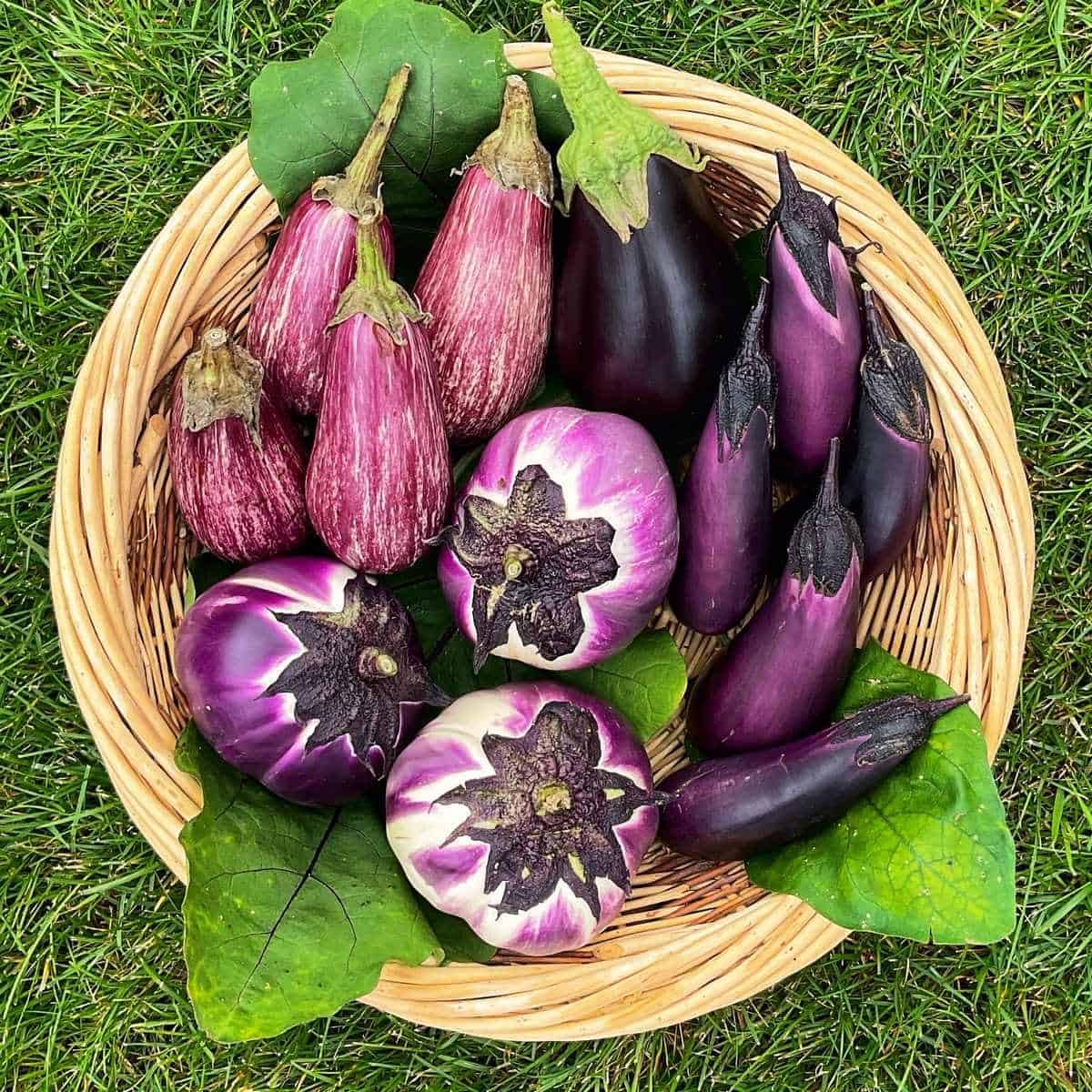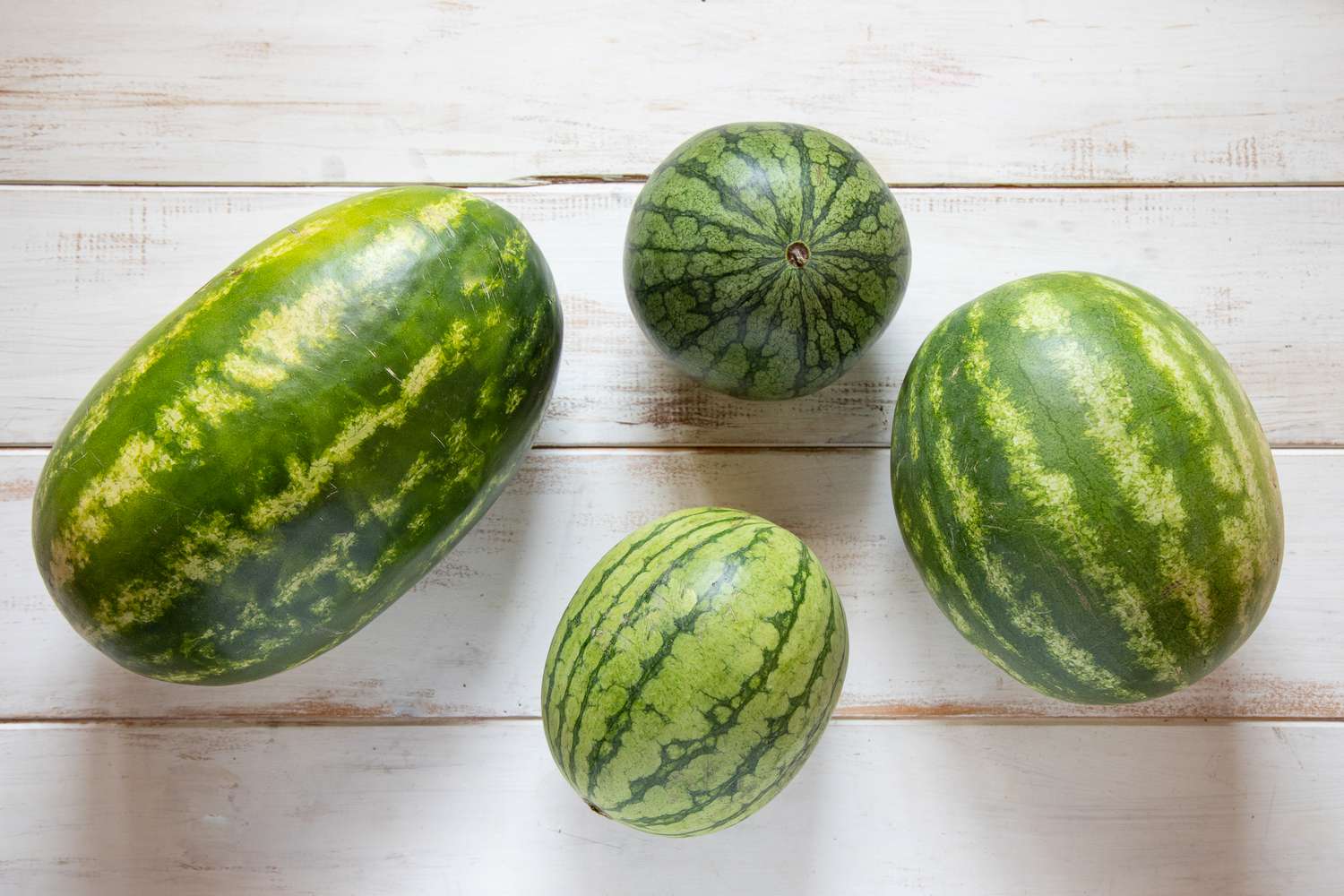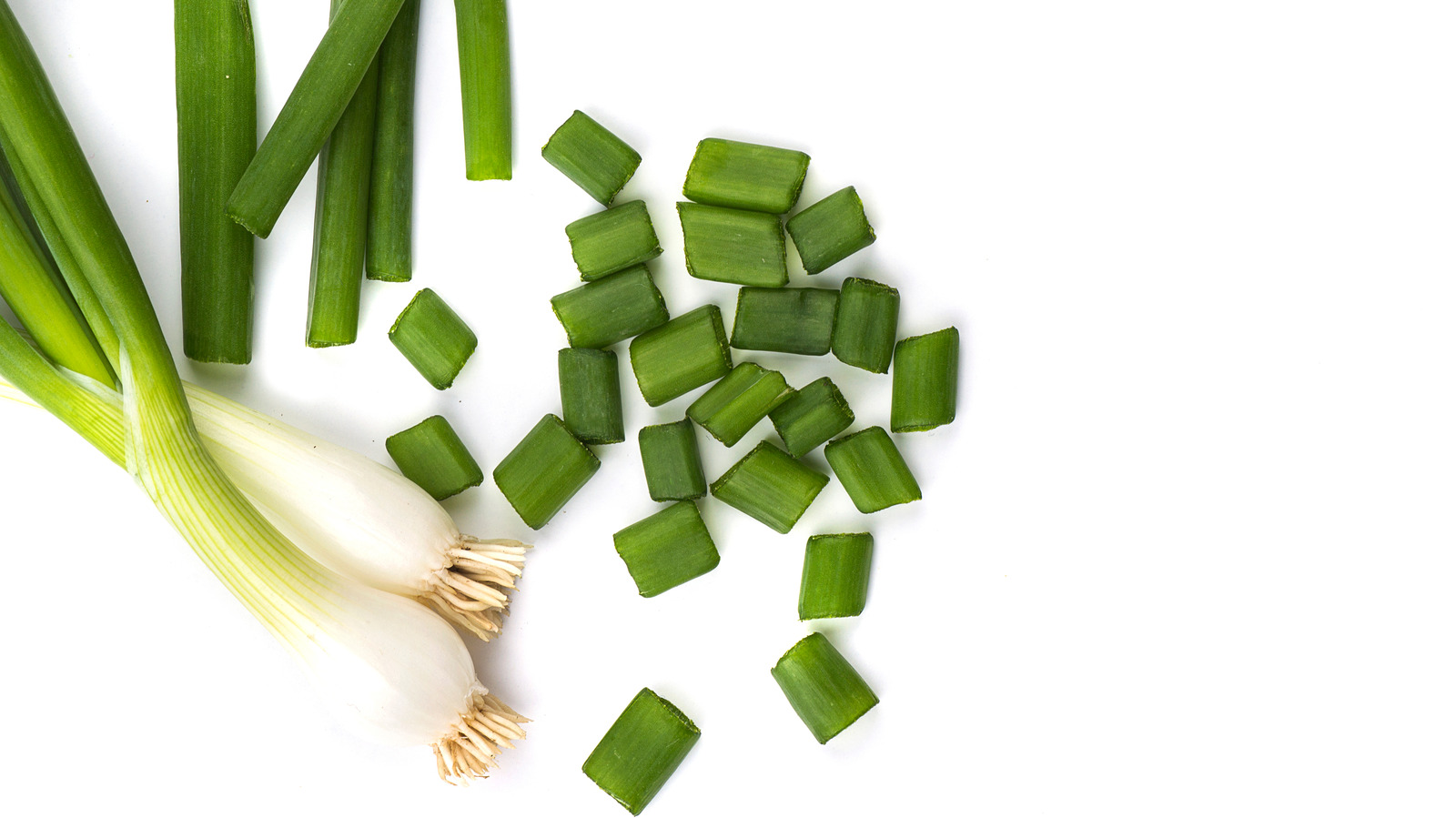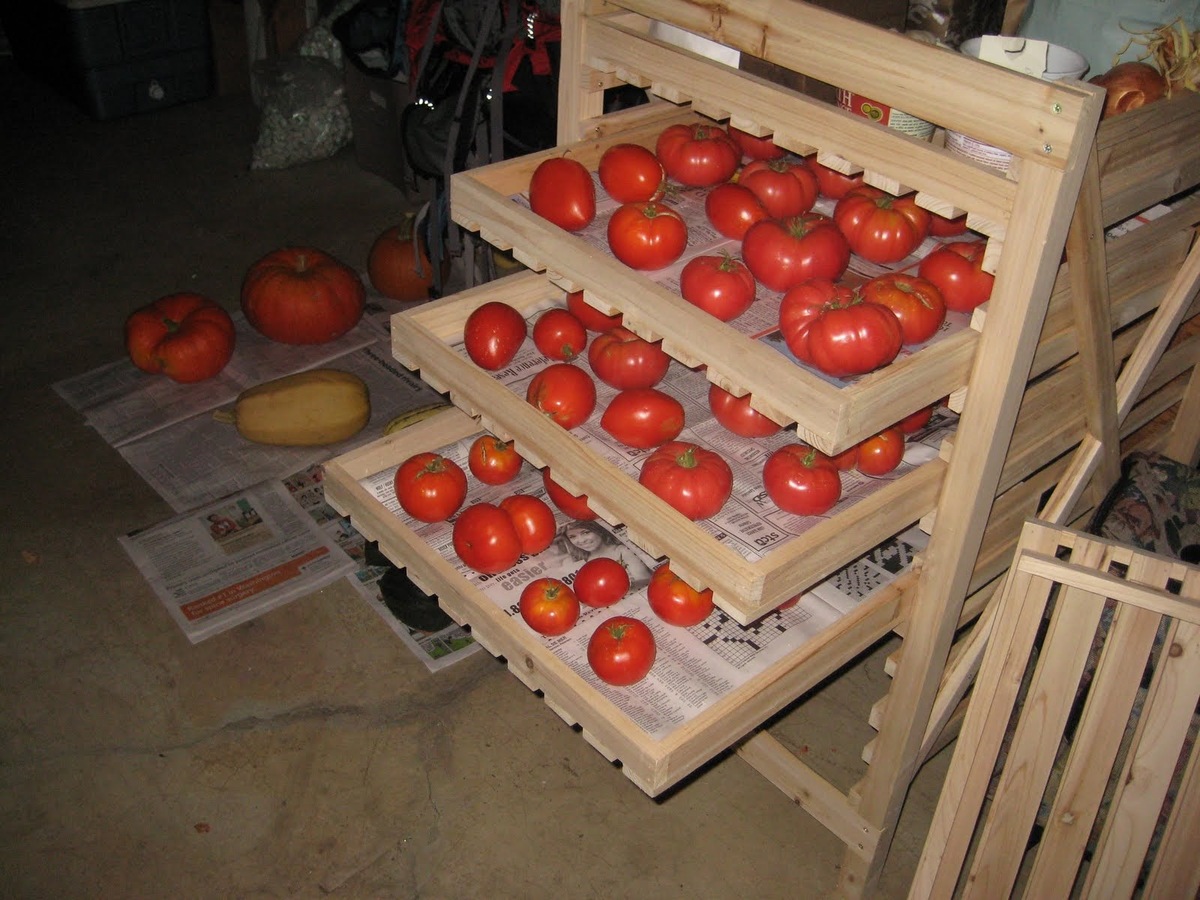

Articles
How To Store Eggplant Long Term
Modified: February 22, 2024
Learn effective ways to store eggplant for extended periods of time with our informative articles. Discover expert tips and tricks for long-term eggplant storage.
(Many of the links in this article redirect to a specific reviewed product. Your purchase of these products through affiliate links helps to generate commission for Storables.com, at no extra cost. Learn more)
Introduction
When it comes to fresh produce, finding ways to store it for the long term can be a challenge. Eggplant, with its unique taste and versatility, is no exception. Whether you have a surplus of eggplant from your garden or found a great deal at the local farmers market, knowing how to store it properly is crucial to avoid waste and enjoy its deliciousness for months to come.
In this article, we will explore various methods for storing eggplant long term. From refrigeration to freezing, canning, and dehydrating, we’ll cover the steps you need to take to preserve eggplant and maintain its quality over an extended period.
So, if you’re ready to dive into the world of eggplant storage, let’s get started!
Key Takeaways:
- Preserve eggplant’s flavor and versatility by choosing firm, smooth eggplants for long-term storage. Properly prepare and package them to enjoy delicious eggplant dishes year-round.
- Whether refrigerating, freezing, canning, or dehydrating, handle eggplant delicately and maintain the right temperature and moisture levels for optimal long-term storage. Rotate and inspect stored eggplant regularly to minimize waste and enjoy its freshness.
Read more: How To Store Eggplant
Choosing the Right Eggplant
Before you can start storing eggplant, it’s important to choose the right ones for long-term storage. Here are some tips to help you select the best eggplant:
- Size and Shape: Look for eggplants that are firm and have a smooth, shiny skin. Avoid any that are wrinkled, discolored, or have soft spots. The ideal size for long-term storage is medium to large, as smaller eggplants tend to have a shorter shelf life.
- Variety: There are several varieties of eggplant, each with its own characteristics. While most eggplants can be stored using the methods mentioned in this article, some varieties, such as the Italian or Asian eggplant, tend to have better storage qualities.
- Ripeness: For long-term storage, it’s best to choose eggplants that are slightly underripe. Look for ones that are firm and have a slight give when gently pressed. Overripe eggplants may not store well and can develop a bitter taste.
- Organic vs. Conventional: When possible, opt for organic eggplants. They are typically free from chemical pesticides and have a better flavor profile. However, if organic options are not available, conventionally grown eggplants can also be stored using the methods outlined in this article.
By paying attention to these factors, you will ensure that you start with the best possible eggplant for long-term storage. Remember, the quality of the eggplant you select will ultimately affect how well it stores and how delicious it remains over time.
Preparation for Long-Term Storage
Proper preparation is key to ensuring the success of storing eggplant for the long term. Follow these steps to prepare your eggplant before storing:
- Wash and Dry: Start by washing the eggplant thoroughly under cold water to remove any dirt or debris. Use a clean cloth or paper towel to pat them dry. Ensuring the eggplant is dry will prevent excess moisture, which can lead to spoilage during storage.
- Trim and Cut: Next, trim off the stem end of the eggplant and cut it into your desired size and shape. Some recipes may call for slices, cubes, or even whole eggplants. Consider how you plan to use the eggplant in the future and prepare it accordingly.
- Blanch (Optional): If you prefer to blanch the eggplant before storing, bring a large pot of water to a boil. Carefully add the eggplant pieces and blanch them for a couple of minutes. Then, transfer them to an ice bath to halt the cooking process. Blanching can help retain the color and texture of the eggplant during long-term storage.
- Seasoning (Optional): Depending on your preference, you can season the eggplant before storing. Common seasonings include salt, pepper, herbs, and spices. Sprinkle the desired seasonings over the eggplant and gently toss to coat evenly. This step adds extra flavor to your stored eggplant.
- Packaging: Proper packaging is essential for maintaining the quality of the stored eggplant. Use airtight containers, such as glass jars, plastic containers, or freezer bags, to prevent air and moisture from reaching the eggplant. Label the containers with the storage date for easy tracking.
By following these preparation steps, you are setting yourself up for success in storing eggplant long term. Properly cleaned, cut, and packaged eggplant will maintain its freshness and flavor over an extended period, giving you the option to enjoy this versatile vegetable even when it’s out of season.
Storing Eggplant in the Refrigerator
The refrigerator is a convenient option for short-term storage of eggplant, typically up to one week. Here’s how you can store eggplant in the refrigerator:
- Wrap: Start by wrapping the washed and dried eggplant in a paper towel or place it in a perforated plastic bag. This will help absorb excess moisture and maintain the freshness of the eggplant.
- Temperature: Set your refrigerator temperature to around 45°F (7°C). This cool temperature will slow down the ripening process and extend the shelf life of the eggplant.
- Storage Location: Store the wrapped eggplant in the crisper drawer or a dedicated vegetable compartment of your refrigerator. Avoid storing it near fruits such as apples, as they release ethylene gas that can accelerate the ripening process of the eggplant.
- Check Regularly: Periodically check the eggplant for any signs of spoilage, such as mold or softening. Discard any eggplant that shows these signs to prevent spoiling other stored produce.
Keep in mind that storing eggplant in the refrigerator can cause some chilling injury, resulting in a slightly altered texture and flavor. Therefore, it is best to use refrigerated eggplant within a week for optimal taste and texture.
While this method is suitable for short-term storage, if you want to store eggplant for a longer period, consider alternative methods such as freezing, canning, or dehydrating, which we will explore in the following sections.
Freezing Eggplant
Freezing eggplant is an excellent way to store it for the long term, allowing you to enjoy this versatile vegetable even when it’s out of season. Follow these steps to freeze eggplant:
- Preparation: Start by washing the eggplant thoroughly under cold water to remove any dirt or debris. Cut the eggplant into your desired size and shape, such as slices, cubes, or strips.
- Blanching: Blanching the eggplant before freezing helps preserve its color, texture, and flavor. Bring a large pot of water to a boil and add the eggplant pieces. Blanch them for 3-4 minutes, then transfer them to an ice bath to cool and halt the cooking process.
- Drain and Dry: After blanching, drain the eggplant and pat it dry using a clean kitchen towel or paper towel. Removing excess moisture will prevent ice crystals from forming and ensure better quality when thawed.
- Packaging: Place the prepared and dried eggplant into freezer-safe bags or airtight containers. Squeeze out any excess air before sealing to minimize freezer burn. Label the containers with the storage date.
- Freezing: Lay the bags or containers flat in the freezer to allow for easier stacking and space optimization. For better organization, you can freeze the eggplant slices or pieces individually on a baking sheet before transferring them to the storage containers.
Frozen eggplant can be stored for up to 8-12 months in the freezer. When you’re ready to use it, simply thaw the desired amount in the refrigerator overnight or use it directly in cooked dishes, as thawed eggplant may become soft and mushy when raw.
Whether you’re planning to make eggplant Parmesan, ratatouille, or stir-fries, having frozen eggplant on hand makes meal preparation easier and more convenient. Just remember to properly package and label the frozen eggplant to ensure its quality remains intact throughout its freezer storage.
To store eggplant long term, wrap it in a paper towel and place it in a perforated plastic bag in the crisper drawer of the refrigerator. This will help to maintain its freshness for up to a week.
Read more: How To Store Cut Eggplant
Canning Eggplant
Canning eggplant is a fantastic way to preserve it for an extended period at room temperature. Follow these steps to can eggplant:
- Preparation: Start by washing the eggplant thoroughly and slicing it into your desired size and shape. You can choose to leave the skin on or peel it, depending on your preference.
- Blanching: Blanch the eggplant slices in boiling water for 3-4 minutes, then transfer them to an ice bath to cool. Blanching helps retain the texture and flavor of the eggplant during the canning process.
- Preparing the Jars: Wash the canning jars and lids with warm, soapy water and sterilize them by boiling them in a large pot of water for 10 minutes. Carefully remove them and place them on a clean towel to dry.
- Packaging: Pack the blanched eggplant slices into the sterilized jars, leaving about an inch of headspace at the top. If desired, you can add seasonings or herbs, like garlic or basil, to enhance the flavor.
- Syrup or Liquid: Prepare a hot syrup or liquid to pour over the eggplant slices in the jars. This can be a mixture of water, vinegar, sugar, and salt, or a brine solution. The specific recipe will depend on your preference and the canning method you choose.
- Sealing and Processing: Wipe the rims of the jars with a clean, damp cloth to ensure a good seal. Place the lids on the jars and screw on the bands until fingertip-tight. Process the jars in a water bath canner or pressure canner according to the specific canning recipe you are following.
Properly canned eggplant can be stored for up to one year in a cool, dark pantry or cupboard. Ensure that the jars are tightly sealed, and check for any signs of spoilage, such as mold or leaking, before consuming.
Canned eggplant is a convenient option for adding to various dishes, like pasta sauces, stews, or casseroles. It saves time during meal preparation while still providing the delicious flavor and texture of freshly harvested eggplant.
Note: Be sure to follow a trusted canning recipe or guidelines from reputable sources to ensure safe canning practices and prevent the risk of foodborne illnesses.
Dehydrating Eggplant
Dehydrating eggplant is a great method to preserve its flavor and use it in a variety of dishes. Follow these steps to dehydrate eggplant:
- Preparation: Begin by washing the eggplant thoroughly and cutting it into thin slices, about 1/4 to 1/8 inch thick. You can leave the skin on or peel it, depending on your preference.
- Pre-Treatment (Optional): Some people prefer to pre-treat eggplant slices to help preserve their color. You can dip the slices in lemon juice or a solution of water and salt for a few minutes before dehydrating. This helps prevent oxidation and maintain a vibrant color.
- Arrange the slices: Lay the eggplant slices in a single layer on dehydrator trays or baking sheets lined with parchment paper. Make sure there is enough space between the slices for air circulation, as this will aid in the drying process.
- Dehydrating: Set your dehydrator to around 135°F (57°C), or if using an oven, set it to the lowest temperature. Place the trays with the eggplant slices inside the dehydrator or oven and allow them to dehydrate for 8-12 hours, or until they become crisp and brittle.
- Cooling and Storing: Once the eggplant slices are fully dehydrated, remove them from the dehydrator or oven and let them cool completely. Store the dried slices in an airtight container or resealable bags, ensuring they are completely dry and free from moisture. Label the container with the date of dehydration.
Dehydrated eggplant can be stored for up to a year in a cool, dark pantry or cupboard. When you’re ready to use it, simply rehydrate the dried slices by soaking them in water or adding them directly to soups, stews, or sauces during cooking.
Dehydrated eggplant adds a unique flavor and texture to a variety of dishes, such as stir-fries, pasta dishes, or even as a topping for salads. It’s a convenient and versatile way to enjoy the flavors of eggplant throughout the year.
Remember to store the dehydrated eggplant properly to maintain its quality. Keep them away from moisture, heat, and sunlight to ensure maximum shelf life and flavor retention.
Tips for Maintaining Eggplant Quality
To ensure the long-term storage of eggplant and maintain its quality, consider the following tips:
- Choose Fresh Eggplant: Select fresh, firm eggplants with smooth and shiny skin. Avoid ones that are wrinkled, discolored, or have soft spots. Starting with high-quality eggplant will increase the chances of successful storage.
- Handle with Care: Eggplants are delicate vegetables, so handle them with care to avoid bruising or damage. Rough handling can lead to faster spoilage during storage.
- Store at the Right Temperature: Depending on the storage method, maintain the appropriate temperature for eggplant storage. Refrigerate at around 45°F (7°C) for short-term storage or freeze at 0°F (-18°C) for long-term storage.
- Keep Moisture in Check: Excess moisture can cause spoilage, so make sure to dry the eggplant thoroughly before storage. Avoid washing the eggplant until you are ready to use it to prevent unnecessary moisture buildup.
- Rotate Stored Eggplant: If you have multiple eggplants in storage, make sure to rotate them regularly. This will help ensure that older ones are used first, preventing any potential waste.
- Inspect Regularly: Check on your stored eggplant periodically and discard any that show signs of spoilage, such as mold or softening. Removing spoiled eggplant will help prevent the spread of spoilage to other stored produce.
- Label and Date Containers: Properly label and date your storage containers to keep track of the storage time. This will help you use the oldest eggplant first and maintain a well-organized storage system.
- Use the Proper Storage Method: Different storage methods, such as refrigeration, freezing, canning, or dehydrating, have varying shelf lives and quality retention. Choose the method that best suits your needs and the duration you plan to store the eggplant.
- Store in Small Portions: If you prefer using eggplant in smaller portions, consider freezing or canning them in individual serving sizes. This will make meal preparation more convenient and prevent unnecessary thawing or waste.
By following these tips, you can extend the shelf life of eggplant and maintain its quality for a longer period. Enjoy the delicious flavors of eggplant in your favorite dishes, even when it’s not in season!
Conclusion
Storing eggplant long term allows you to enjoy this versatile vegetable well beyond its natural harvest season. By choosing the right eggplant, properly preparing it, and selecting the appropriate storage method, you can preserve the flavor and quality of eggplant for months to come.
Whether you opt for storing eggplant in the refrigerator, freezing it, canning it, or dehydrating it, each method offers unique benefits and considerations. Refrigeration is suitable for short-term storage, while freezing, canning, and dehydrating provide options for longer storage durations.
When storing eggplant, it is important to handle it delicately, store it at the proper temperature, control moisture levels, and regularly inspect stored eggplant for any signs of spoilage. By following these tips, you can maximize the shelf life and maintain the quality of your stored eggplant.
Remember to label and date your storage containers to ensure proper organization, and make sure to rotate the stored eggplant to use the oldest ones first. This helps minimize waste and ensures that you enjoy the freshest eggplant possible.
Whether you’re using stored eggplant in pasta dishes, stir-fries, casseroles, or other culinary creations, knowing how to store eggplant long term gives you the flexibility to enjoy its unique flavor and texture year-round.
So, the next time you find yourself with an abundance of eggplant, don’t let it go to waste. Choose your preferred storage method and savor delicious eggplant dishes at your convenience.
With a little planning and preparation, you can extend the lifespan of eggplant and continue to enjoy its rich taste and culinary versatility long after its harvest season has ended.
Frequently Asked Questions about How To Store Eggplant Long Term
Was this page helpful?
At Storables.com, we guarantee accurate and reliable information. Our content, validated by Expert Board Contributors, is crafted following stringent Editorial Policies. We're committed to providing you with well-researched, expert-backed insights for all your informational needs.















0 thoughts on “How To Store Eggplant Long Term”